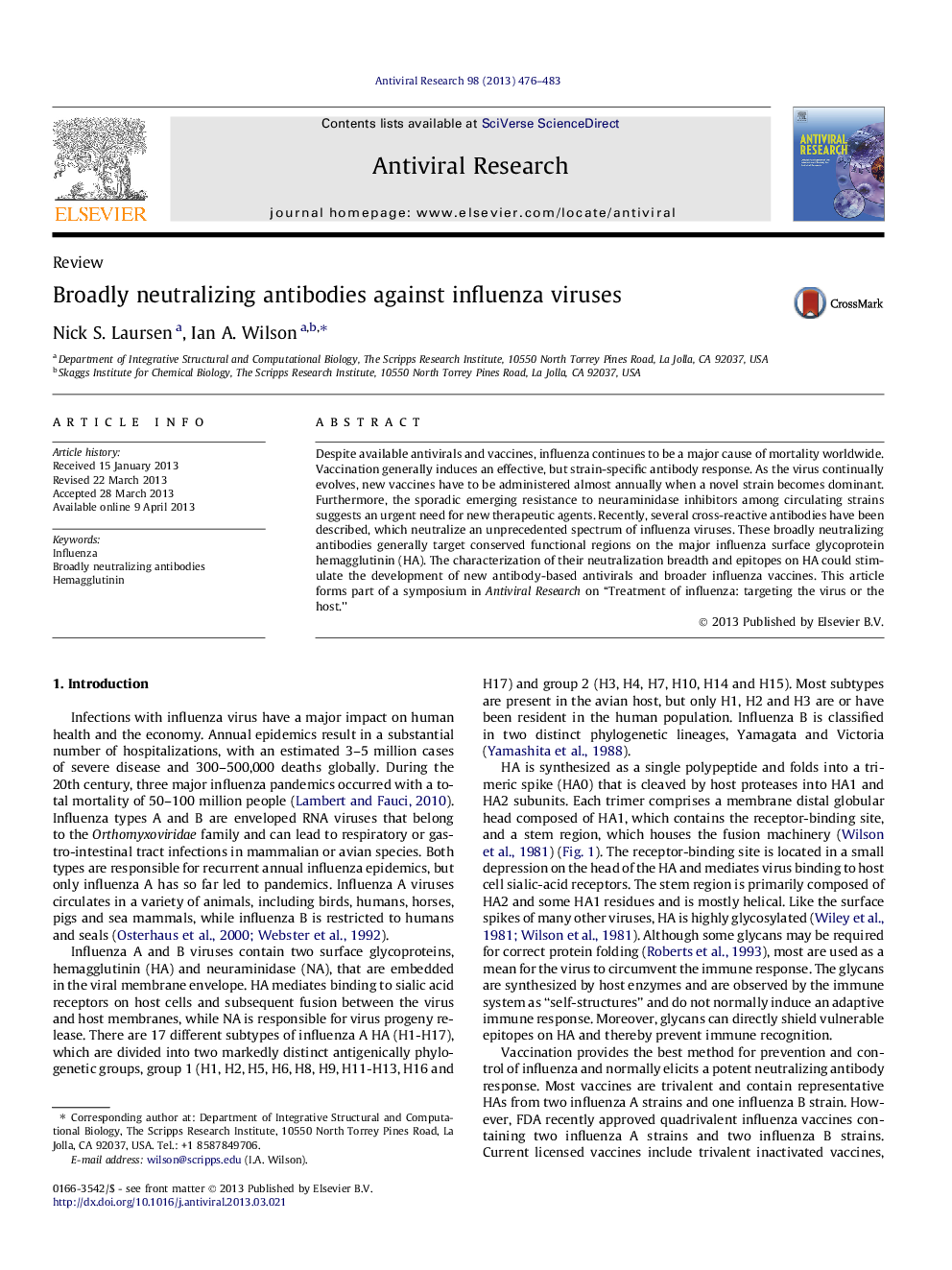| Article ID | Journal | Published Year | Pages | File Type |
|---|---|---|---|---|
| 5822391 | Antiviral Research | 2013 | 8 Pages |
â¢Broadly neutralizing antibodies against influenza virus hemagglutinin are described.â¢Different antibodies employ different strategies to inhibit or neutralize influenza virus.â¢The design of influenza inhibitors, treatment and vaccines are discussed.
Despite available antivirals and vaccines, influenza continues to be a major cause of mortality worldwide. Vaccination generally induces an effective, but strain-specific antibody response. As the virus continually evolves, new vaccines have to be administered almost annually when a novel strain becomes dominant. Furthermore, the sporadic emerging resistance to neuraminidase inhibitors among circulating strains suggests an urgent need for new therapeutic agents. Recently, several cross-reactive antibodies have been described, which neutralize an unprecedented spectrum of influenza viruses. These broadly neutralizing antibodies generally target conserved functional regions on the major influenza surface glycoprotein hemagglutinin (HA). The characterization of their neutralization breadth and epitopes on HA could stimulate the development of new antibody-based antivirals and broader influenza vaccines. This article forms part of a symposium in Antiviral Research on “Treatment of influenza: targeting the virus or the host.”
